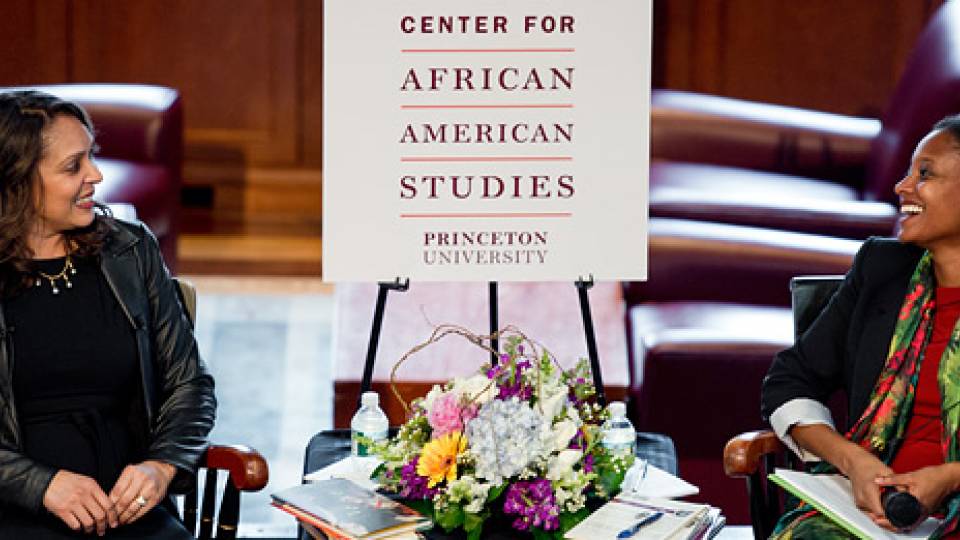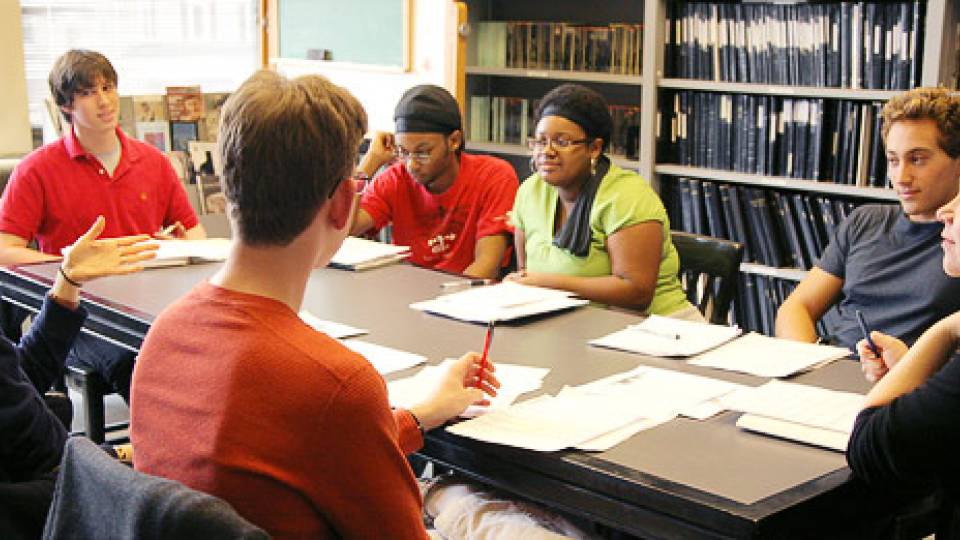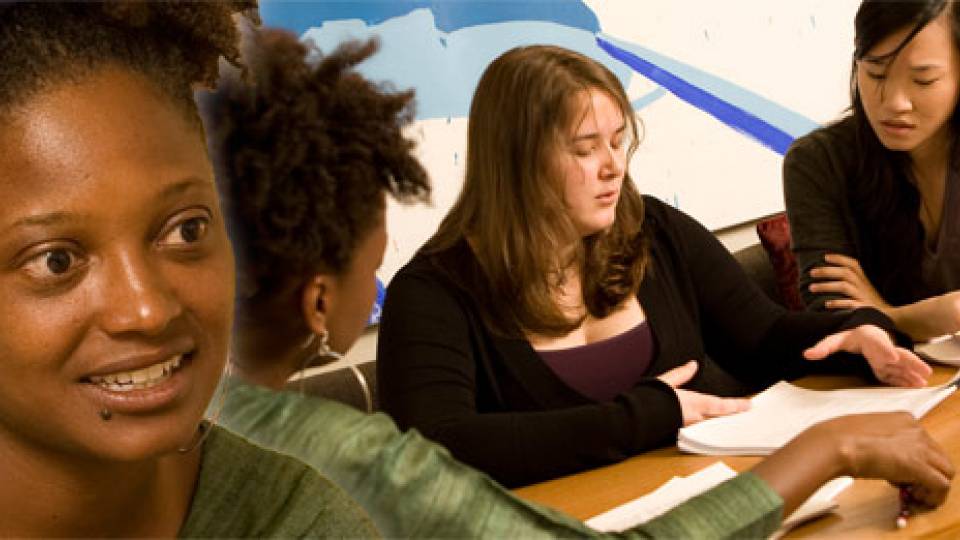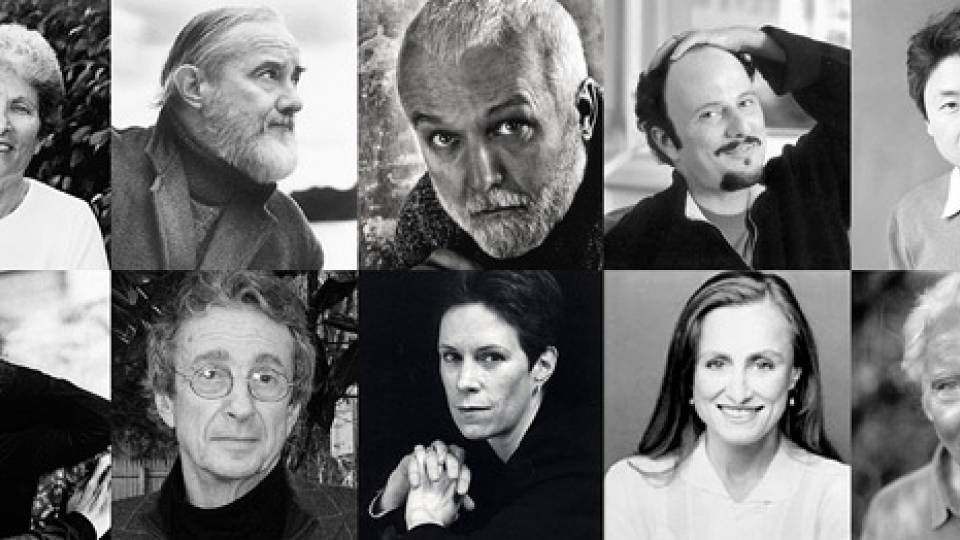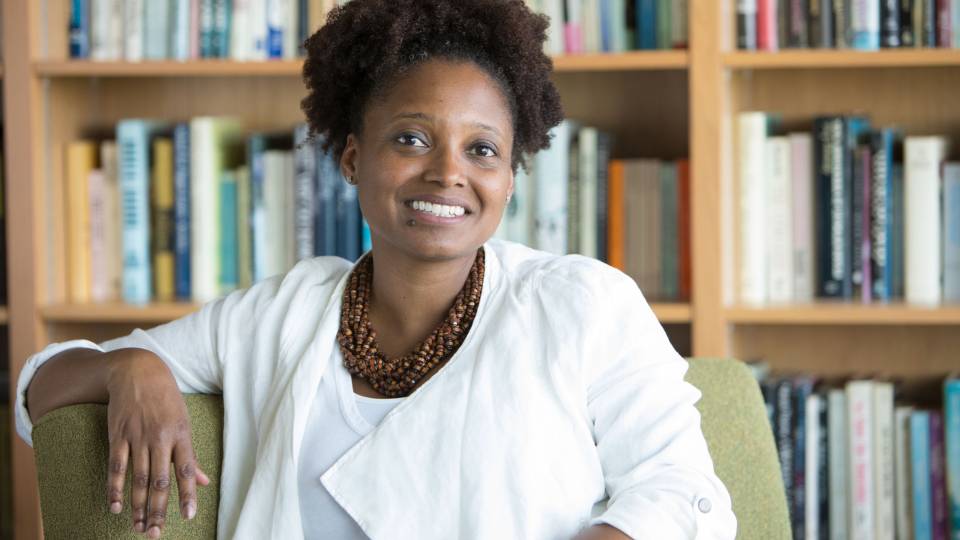A poetry class at Princeton usually starts with a small group of students sitting around a table, talking about rhythm and images and language.
If the professor is Brenda Shaughnessy(Link is external), she may offer one of her quirky rules: You may only use the word “soul” in a poem once in your lifetime, and never the word “shards.” Susan Wheeler(Link is external) has asked students to write a poem in which they approach their subject from the point of view of an inanimate object. And Paul Muldoon(Link is external) likes to give these instructions at the end of a class: “Don’t come back here please without a poem that’s going to change my life.”
“The professors here have given me a sense of poetry as an enjoyable, playful thing,” said Maia ten Brink, a sophomore who has taken three poetry classes at Princeton. “I’ve learned from them to sidle into it, wander into it, follow a thought, play around -- and look for sources of inspiration where you might not think they would be.”
Intimate classes -- enrollment is capped at 10 students -- and a faculty composed of highly regarded poets, two of whom are Pulitzer Prize winners, make Princeton an incomparable place to write poetry, say students.
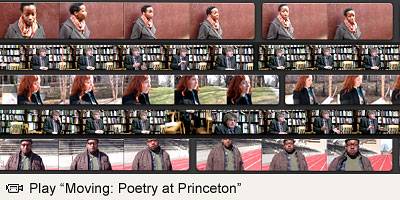
Watch students and professors talk about poetry at Princeton in this video(Link is external).
“I am impressed every semester by the caliber of the students and professors,” said Carter Greenbaum, a junior who has studied with four poetry professors, including Shaughnessy, a lecturer in creative writing(Link is external) and author of two poetry collections. “It is really the union of effective professors and challenging and gifted students that makes the poetry workshop effective.”
World-renowned professors -- including award-winning poet Tracy K. Smith(Link is external) and James Richardson(Link is external), who was selected to receive this year’s Jackson Poetry Prize -- not only teach small classes, but also are very available outside class, even to beginners. “Seriously famous people are accessible to introductory students,” ten Brink said.

“The professors here have given me a sense of poetry as an enjoyable, playful thing,” said Maia ten Brink, a sophomore who has taken three poetry classes at Princeton. “I’ve learned from them to sidle into it, wander into it, follow a thought, play around -- and look for sources of inspiration where you might not think they would be.”
This month, Princeton’s poetry students -- and members of the community who love poetry -- will be getting inspiration from some of the world’s most talented and provocative poets at the Princeton Poetry Festival(Link is external), to be held at the University April 29-30 (see sidebar).
“What we see ourselves doing is offering a festival for the people of Princeton -- for our students, of course, and for the wider community,” said Muldoon, the Howard G.B. Clark ’21 University Professor in the Humanities and chair of the Lewis Center for the Arts(Link is external), who won a Pulitzer Prize for poetry in 2003. Muldoon runs the biennial festival, which was held for the first time in 2009. “We’re pleased to remind ourselves and others of the centrality of poetry to Princeton.”
Festival invites community and high school students
An international roster of poets -- including Paolo Henriques Britto of Brazil, Agi Mishol of Israel and Aleš Šteger of Slovenia -- will appear alongside Americans Anthony Carelli, Mark Doty, Kathleen Graber, Sharon Olds, Carl Philips, Charles Simic and Natasha Trethewey. This year’s festival places a particular emphasis on translation -- English versions of poems by Britto and Šteger will be read by their respective U.S. translators, Idra Novey and Brian Henry.
The festival’s focus on translation echoes the strength of the creative writing program’s instruction in translating literary works, including a course called “Literary Translation,” in which students fluent in a language besides English translate works of poetry and fiction from that language into English. This semester students in the class are working on translations from Bulgarian, Chinese, French, Japanese, Romanian and Spanish, including works by Charles Baudelaire, Pablo Neruda and eighth-century Chinese poets.
“What I hope the students learn is an appreciation of the marvels and complexities and splendid ambiguities of language, and of the intricacies and glory of literature, seen from within, as it were,” said C.K. Williams(Link is external), a lecturer with the rank of professor in creative writing and a Pulitzer Prize winner for poetry in 2000, who teaches the course. “There’s also a great deal of plain fun in translating, and I hope they get an appreciation of that.”
The festival will afford them “a splendid occasion to hear living poets in their originals and in translation,” Williams said.
Local high school students also will have the opportunity to benefit from the festival. The University is distributing more than 100 free tickets to the festival to 11 area high schools. Students and teachers from Princeton High School who will be attending “are grateful for the opportunity to hear contemporary poets read their own poetry,” said Barbara O’Breza, the K-12 language arts supervisor for the Princeton Regional Schools. “The festival enables us to nurture our students in the poetic tradition, both as poets and readers of poetry, and to help them realize the importance of the poet’s voice in society.”
For Princeton sophomore Allen Williams, who often performs his poetry at events sponsored by the Black Student Union(Link is external), the festival is a chance “to hear poets who are publishing nowadays and to be able hopefully to pick their brains. We’ll have poets in our backyard to whom I can talk about writing, editing, publishing, their aesthetic of poetry. It’s such a good opportunity.”

The poetry faculty at Princeton -- which includes highly regarded writers such as award-winning poet Tracy K. Smith -- is very available outside class, even to beginning students.
Muldoon tells students, ‘Do it now’
Allen Williams, like many other campus poets, often does his writing at the Writers Studio(Link is external) in Blair Tower, a cozy space where writers gather to read literary magazines, exchange ideas and work on their poems. There are drop-in writing workshops, meet-the-author gatherings, and book and poem discussions, all organized by the student staff of the Writers Studio. Students also gather for informal weekly dinners to exchange and critique their poems and stories.
Working on their writing with a group of peers demonstrates the notion that Muldoon and other professors promote with their students: You are writers, and this is the time to write. “You may think,” Muldoon tells his students, “this is something you’re going to do when you grow up. Incorrect. This is it. Do it now, please. Don’t postpone it.” For students, it’s important “to believe they can do it, and then paradoxically they have to wonder if they can do it, so it’s an odd mixture of nerve and nervousness,” Muldoon said.
“Just write” is a maxim from her Princeton professors that senior Ting Gou often hears in her head as she’s composing her poetry. Gou is a molecular biology major and the editor-in-chief of the Nassau Literary Review(Link is external).
“Science and poetry are more similar than you might think,” Gou said. “Both require a close attention to detail. If I’m fascinated by molecular pathways and metaphors, why not try to explore my surroundings with all of my interests? Doing research in the lab helps me understand the world, and writing poetry in my room -- or in the lab -- helps me understand my place in it.”
Wheeler, the director of the Program in Creative Writing and author of five collections of poetry, said Gou exemplifies the interest many Princeton students from across the disciplines have in poetry.
“Some of our strongest students are from the sciences or disciplines that you would think would be far-flung, and they’re often superlative students doing this on the side of their primary concentration,” Wheeler said.
Gou, who is earning a certificate in creative writing, is composing a collection of poems for her creative thesis while working on a lab thesis in molecular biology. In a recent meeting with her poetry adviser, lecturer in creative writing Michael Dickman(Link is external), she asked him how he writes his poetry. “He told me that he kept a small notebook in which he jotted down phrases and ideas for poems,” Gou said. “He then showed me that notebook, and I realized that, at Princeton, I have the opportunity to ask these poets questions that I would never otherwise have the chance to ask.”
Dickman, whose second collection of poetry, “Flies,” will be published next month, finds Princeton students “extremely engaged and present and wildly creative,” he said. “They do not shy away from the hard work of reading and writing contemporary poetry.”
He hesitates to think of himself as “teaching” his students to write poetry: “A poetry workshop with Princeton students is an exciting couple of hours full of reciprocity and surprise,” he said. “I try to create a workshop, along with them, of exploring and discovery instead of one of ‘corrections’ and surgery. The poetry workshop should be thought of as a messy art class, a place to make really big mistakes.”
And mistakes, said Muldoon, are essential to creative writing. You need to “try to do things that may fall flat,” he said. “You need to be willing to fail. If you don’t take those risks, nothing interesting is going to happen.”

